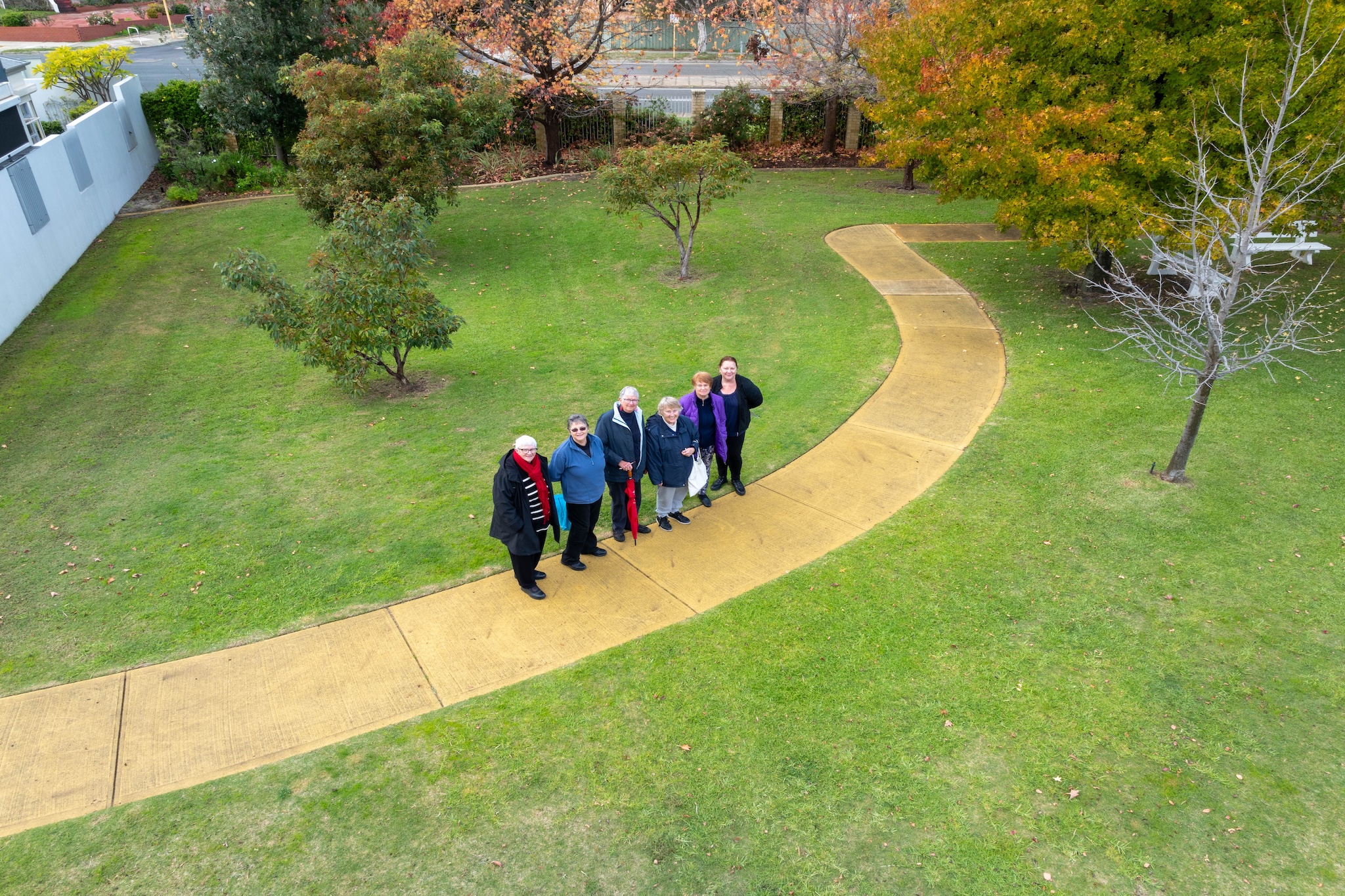
A Community Forest is growing at SwanCare, supported by a grant from the Town of Victoria Park.
7th October 2024
A Community Forest is growing at SwanCare, supported by a grant from the Town of Victoria Park. It's just one of the many environmental projects and initiatives that would not be made possible without the work of our very own Resident Environmental & Sustainability Committee.
Meet the Committee
The Environmental & Sustainability Committee provides a platform for residents to shape the natural environment by finding greener, sustainable solutions, safeguarding the future of our wildlife and surroundings for generations to come.
As Council Chairperson, retirement living resident Bill Waterer attends all SwanCare board meetings and sub-groups of the Board. He also chairs council meetings and attends many sub-groups of the Council, including Resident Connect, Transport, Infrastructure, and Environmental & Sustainability.
Retirement living resident Ellen Clair is another active member of the Bentley Park Residents' Council, primarily working as Convener of the Environment Sub-committee group.
Their extensive knowledge on environment and sustainability matters is founded on personal interest and experience, with Bill being in the industry for 17 years after previously owning his own environment business and becoming the WA Coordinator for Dr. Jane Goodall's school environmental program, Roots and Shoots.
Ellen is equally as passionate, starting the Gardens Interest Group when first moving to Bentley Park, followed by the Environment Group.
"I was happy to relinquish the Chair role to Bill because I have more interest in specific things like drawing up the sustainability plan. I feel we can do more, so we want to get the message out there and start the conversation."
Building Ecosystems
The Urban Forest Project, now known as the Community Forest, presented a fantastic opportunity to maximise the green environment of SwanCare. Ellen explains more.
"The Urban Forest Project is a term used by the government to determine areas for tree canopy - it's quite a widespread movement right now.
Traditionally, community outdoor spaces would involve lots of lawn that needs watering and mowing. We're moving away from this, it's not sustainable. Instead, we've created a mini forest by identifying areas suitable for denser planting, these can be quite small areas with existing established trees where we add mature trees as well as dense underplanting - all being natives of course.
The aim is to improve the density of bushland which will bring more birdlife to the area, as well as pollinators, other insects, and spiders. Essentially, we're building ecosystems."
"Ultimately, we want an environment for residents to go and de-stress," added Bill, "This is particularly important for people in apartments, so they have a green, outdoor space to go to."
The Planting Process
Building an ecosystem is not a simple job. It involves a lot of planning, preparation and extensive knowledge and experience.
"What we plant depends on the land, the soil type, the amount of water available, what can cope with occasional flooding but also with heat," explained Bill, "Different tiers of foliage are needed, and consideration to which species work well to support one another and the wildlife."
Consideration for the community's needs is a priority, in addition to working out what would be sustainable and practical for the land.
"The choice of planting across the village has been very carefully worked out," said Bill, "For example, next to a path you need to choose tree species that don't drop nuts as this can cause trip hazards."
Resident input is important and diverse opinions mean the committee must work out what is best for the community.
"Someone living in an apartment would typically have different opinions to someone in a villa," he pointed out, "So we take on everyone's feedback wherever possible."
Making a Change
The committee are working hard to create a better home where residents can live in synergy with the natural environment. They have a big focus on educating residents on the various waste bins available, tackling recycling issues on all scales.
Through their efforts, the process of emptying vacant units has become more sustainable, with goods recycled or refurbished where possible and sold on to people who can use them, as opposed to going to landfill.
Bill and Ellen also want to make a special mention to fellow committee members Bruce May and Ann Parker, who are responsible for managing the Village Exchange, a program that allows the community to recycle many common items including coffee pods, batteries, blister packs, and bottle lids.
"Luckily, our CEO, Graham Francis, is very open to change, and the Board is receptive to any input for improvements," shared Ellen, "We don't have to do it the same way just because it's always been that way."
There's a lot of work to do, but the team takes it one step at a time, forward planning for our future.
Thank you to the Environmental & Sustainability Committee for your dedication and commitment to better our SwanCare community and beyond.